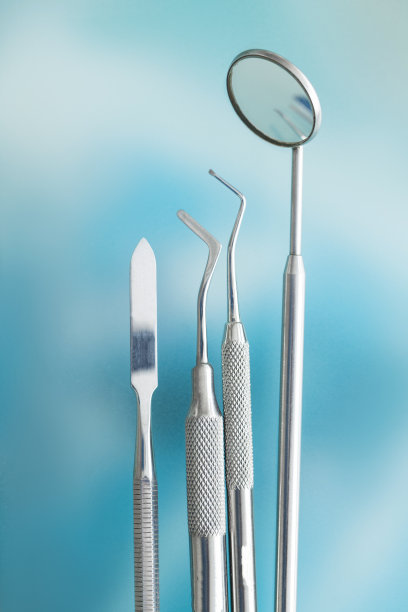Summary: Dental implants have emerged as a groundbreaking solution in the field of dentistry, revolutionizing the way individuals approach oral health and aesthetics. This article explores the transformative journey of dental implants, focusing on the advanced technologies that have made them a viable option for millions. We will discuss the significant benefits these implants provide, the technological advancements that continue to refine the procedure, the psychological and social impacts they have on patients, and practical considerations for prospective recipients. Ultimately, dental implants not only enhance oral health but also empower individuals by restoring their confidence and quality of life.
1. Benefits of Dental Implants for Patients

One of the most significant advantages of dental implants is their ability to restore functionality to patients who have lost teeth. Unlike traditional dentures, which can be uncomfortable and inefficient, implants provide a solution that mimics the natural tooth structure. This means individuals can enjoy eating a wider variety of foods without the fear of slippage or discomfort.
Additionally, dental implants help in preserving the facial structure. Missing teeth can lead to bone loss and an alteration in facial aesthetics. Implants stimulate the jawbone, preventing the further bone deterioration that often accompanies tooth loss. This preservation of bone structure not only enhances the physical appearance but also contributes to long-term oral health.
Furthermore, dental implants are designed to last for many years, or even a lifetime, when properly cared for. This longevity makes them a worthwhile investment for individuals looking for a long-term solution to tooth loss. Regular maintenance and oral hygiene can ensure that implants remain functional and aesthetically pleasing for decades.
2. Technological Advancements in Implantology
The field of implant dentistry has seen remarkable technological advancements over the past few decades. One notable innovation is the use of 3D imaging technology, which allows dental professionals to create precise models of a patient’s mouth. This level of accuracy enables the development of tailored treatment plans and more predictable outcomes.
Another significant advancement is the introduction of computer-guided implant placement. This technology allows for minimally invasive procedures, significantly reducing recovery time and discomfort for patients. The planned placement of dental implants is now more efficient, leading to improved success rates.
Lastly, the development of biocompatible materials has played a crucial role in the success of dental implants. Modern implants are commonly made from titanium, known for its strength, durability, and compatibility with human bone. This ensures that implants can integrate seamlessly into the jawbone, providing a stable and lasting foundation for replacement teeth.
3. Psychological and Social Impact of Implants
The psychological benefits of dental implants cannot be underestimated. Many individuals who have lost teeth experience low self-esteem and social withdrawal. Dental implants can significantly enhance a person’s confidence, allowing them to feel more comfortable in social settings and improving their overall quality of life.
Moreover, dental implants restore not only function but also the natural smile. This improvement in appearance can foster a positive self-image, benefiting both personal and professional relationships. Patients often report an increase in social interactions and a willingness to engage in activities they previously avoided due to embarrassment.
Furthermore, the emotional aspect of having a functional and confident smile extends into various facets of life. Many find that improved oral health directly correlates with better mental well-being, leading to a more active lifestyle and improved overall happiness.
4. Practical Considerations for Potential Recipients
While dental implants offer many benefits, potential recipients should consider a few practical factors. First, it’s crucial to have a thorough consultation with a qualified dental professional to assess whether dental implants are suitable for their specific situation. Factors such as overall health, bone density, and oral hygiene levels can influence candidacy.
Secondly, the financial aspect of dental implants should be considered. While they can be a more costly option upfront compared to dentures, their longevity can make them a more economical choice over time. It is prudent for patients to conduct a cost-benefit analysis and understand their financing options.
Lastly, patients should be prepared for the post-operative care involved with dental implants. This includes adhering to strict oral hygiene practices and attending follow-up appointments. Understanding the responsibilities associated with having implants can help ensure long-term success and satisfaction.
Summary:
The journey of dental implants reflects a remarkable evolution in dental care, influenced by advancements in technology and a deeper understanding of patient needs. From the numerous benefits they provide to cutting-edge procedures and the socio-emotional revival they facilitate, implants are redefining oral health solutions. As more individuals explore this option, continuous innovations promise to enhance the experience even further.
This article is compiled by Vickong Dental and the content is for reference only
Vickong Dental
Vickong Dental is a large medical group established in Hong Kong in 2008 by professors from well-known medical universities in Guangdong and Hong Kong, as well as medical doctors from key national '985' universities (including Master's supervisors and senior professors). The chain of branches brings together expert dentists with PhDs and Master's degrees from Hong Kong and Mainland China, committed to providing high-quality dental treatment.
"Vickong Dental Practices the University Motto of 'Healing and Serving Society,' with a Stable Operation for Sixteen Years. It Has Been honored with Hong Kong Enterprise Leaders's Choice,' and is a Global Trusted Implant Center for the Nobel Implant System. Recommended by Hong Kong Metro Broadcast and Guangdong Television, it Serves Customers from Over Thirty Countries and Regions, Gaining the Trust and Favor of Citizens from the Guangdong-Hong Kong-Macau Greater Bay Area and Surrounding Cities.

Thousands of customers' unanimous praise
The most recognized and highly recommended dental service by customers in the Guangdong-Hong Kong-Macau Greater Bay Area
We Ensure You Receive Detailed Care and Attention Here
Hong Kong standards, Shenzhen prices, Your Trusted English-speaking dentists

Vickong Dental Medical-Grade Instrument Disinfection Process
Vickong Dental Medical-Grade Instrument Disinfection Process

Vickong Dental Chain: A Warm and Comfortable Environment for Treatment






Appointment Hours

Q&A
Why choose Vickong Dental?
Vickong Dental practices the university motto 「Medicine to Benefit Society」, with each branch bringing together highly qualified dentists with doctoral and master’s degrees from Hong Kong and the Mainland, and has maintained seventeen years of steady operation。Recipient of 「2024 Hong Kong Enterprise Leaders Brand」, 「2025 Hong Kong Enterprise Leaders Brand」, a Nobel Biocare Global Trusted Implant Center, and a brand recommended by Metro Radio Hong Kong and Guangdong TV。
To date, we have served customers from more than thirty countries and regions,earning exceptionally high word-of-mouth recognition and trusted recommendations from residents across the Guangdong-Hong Kong-Macao Greater Bay Area and surrounding cities
We have eight major branches in Zhuhai、Shenzhen,and a consultation and service assurance center in Hong Kong,so you can book a free consultation at any time for any questions,which is very reassuring.
If I do not accept the quotation after the CT scan, will I be charged??
No! As long as the actual treatment has not started, you will not be charged any fees.
Will there be any additional charges during the treatment process?
No, there won’t be any additional charges. Before treatment begins, we will clearly explain the treatment plan and its corresponding fees. Only after the patient agrees and signs the consent form will we proceed with the dental service.
Can I pay in Hong Kong dollars?
Yes. Vickong Dental accepts payment in Hong Kong dollars. The amount will be converted based on the exchange rate of the day, and the applicable rate will be clearly communicated to you in advance.
Can I reschedule my appointment at any time?
Yes. Please contact us via **WeChat** or **WhatsApp** as early as possible, providing your original appointment time and details, along with your preferred new date and time slot for rescheduling.













